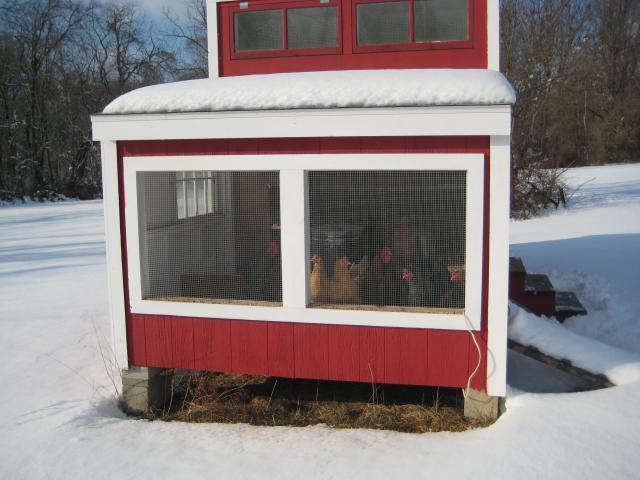Spartagon
In the Brooder
I don't want my chickens to suffer in the frigid weather if I can help it. We lost a dear chicken last winter. The poor thing was too skinny due to her position in the pecking order.
Soon after her death we added a few heating lamps to our hen coop and one to our rooster coop. The lamp we had in the rooster coop fell causing a smoldering fire that killed three of our boys. One survived but barely. He is great now. Then with the constant light from the lamps our girls were over laying, and one became egg-bound. She's okay now too.
ALRIGHTY THEN...., so far I heard of these electric Hound Heaters that are used for dogs and work well in coops and are safe. I also read that electric oil radiators are the safest. Oil, gas, and propane allow for condensation which is terrible. We do not want moisture.
Please send me your ideas and experience on the heating issue. Thank you.
****TO STAFF****
I do not appreciate being edited. I SPECIFICALLY made this thread to keep those people that tell me my chickens don't need heat out of my thread. NOW I have to weed through the nonsense to get the answers I need.
Edited by Staff
Soon after her death we added a few heating lamps to our hen coop and one to our rooster coop. The lamp we had in the rooster coop fell causing a smoldering fire that killed three of our boys. One survived but barely. He is great now. Then with the constant light from the lamps our girls were over laying, and one became egg-bound. She's okay now too.
ALRIGHTY THEN...., so far I heard of these electric Hound Heaters that are used for dogs and work well in coops and are safe. I also read that electric oil radiators are the safest. Oil, gas, and propane allow for condensation which is terrible. We do not want moisture.
Please send me your ideas and experience on the heating issue. Thank you.
****TO STAFF****
I do not appreciate being edited. I SPECIFICALLY made this thread to keep those people that tell me my chickens don't need heat out of my thread. NOW I have to weed through the nonsense to get the answers I need.
Edited by Staff
Last edited:



